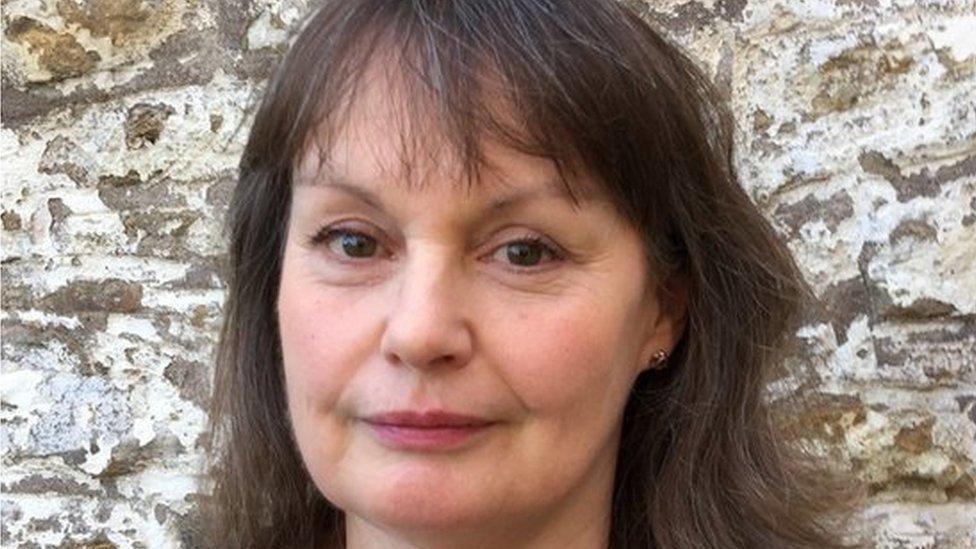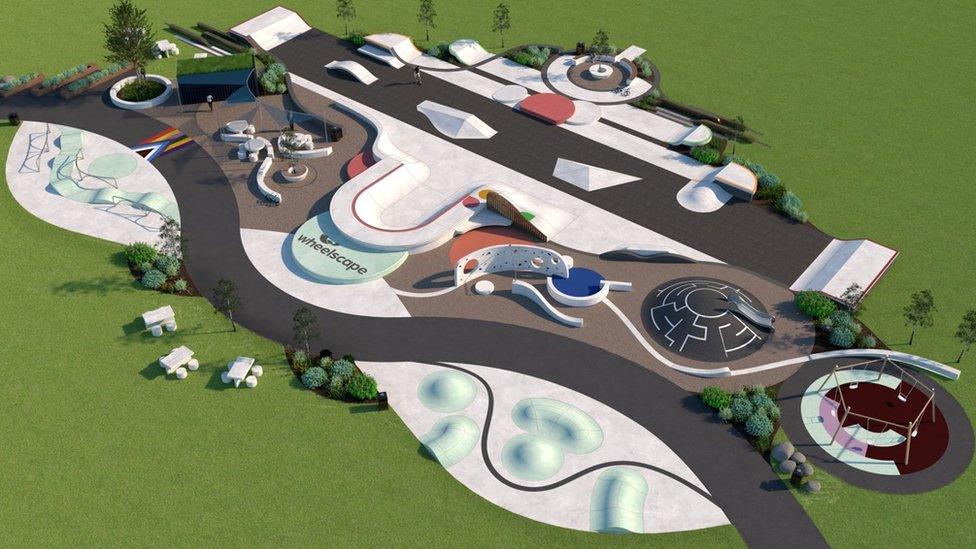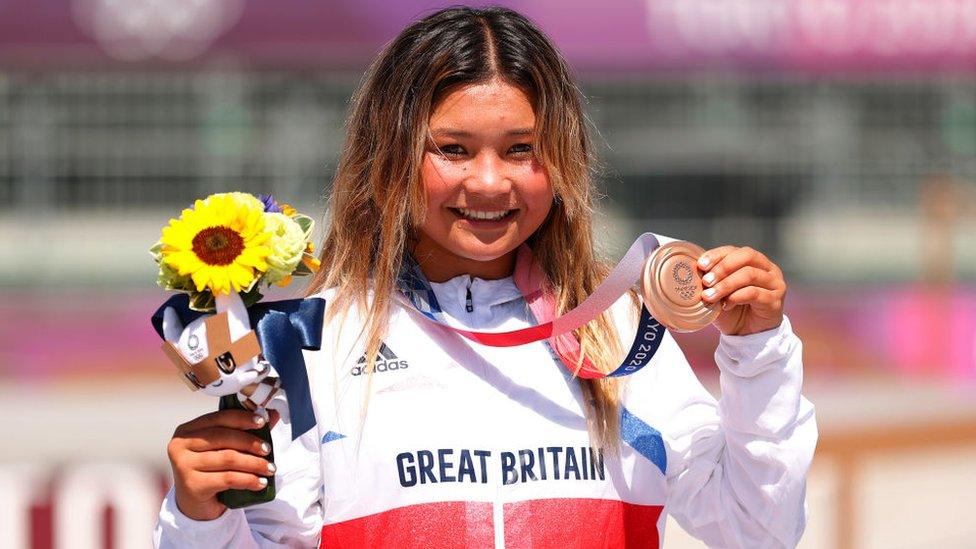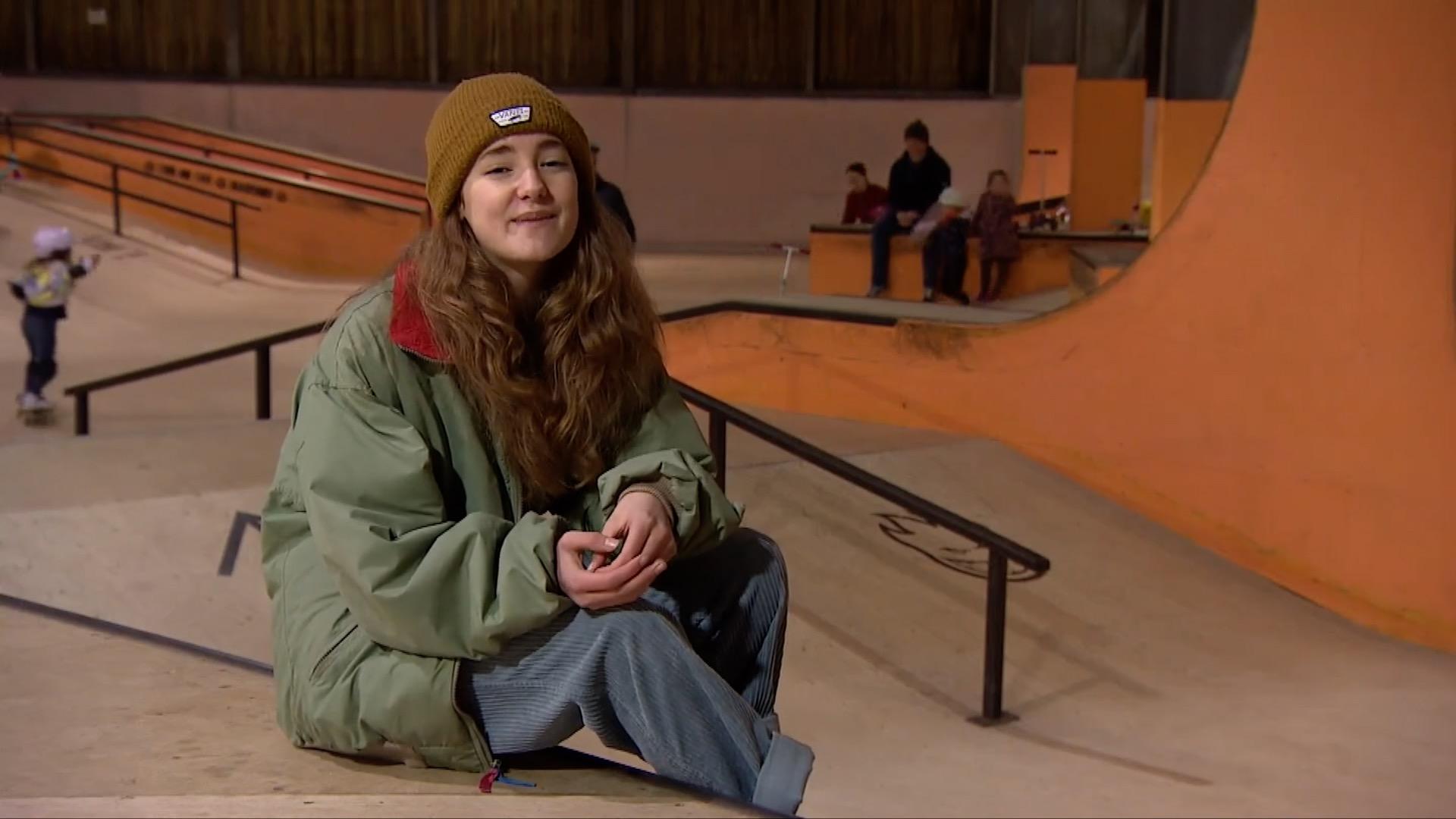Make Space for Girls encouraging more female skateboarding
- Published

Susannah Walker said the design and location of most skateparks put girls off using them
A campaign has been launched to encourage girls to try skateboarding by improving access to the sport.
Make Space for Girls, based in Frome, Somerset, aims to ensure skating facilities at parks and public spaces are suitable and welcoming for girls.
Founder Susannah Walker said more girls had taken-up the sport since Sky Brown's performances at the Olympics, but they were still in the minority.
"They do find it difficult to get onto the skate parks," added Ms Walker.
"A lot of it's down to design quite often [as] they're out in uncomfortable places, in the furthest, darkest corner of the park.
"It doesn't feel great or safe. We know lots more girls want to skateboard," Ms Walker said.

The charity is working with a design company on a blueprint for what an inclusive skate park might look like.
Among the improvements that the group has suggested include better lighting, wider entrances to play areas and having separate areas for varying levels of skill and experience.
Make Space for Girls says there are currently only about two or three skate parks - out of a total of 1,600 - in the country which have been designed to be inclusive.
The charity, which operates all across the UK, said its research had shown that girls they had spoken to avoided skate parks at busy times and had been made to feel unwelcome by other users.
Co-founder Imogen Clark said she helped set up the charity, and has launched the nationwide campaign, because of the "discrimination girls face" when trying to access skateboarding.
"In reality, skate parks are dominated by boys," she said.
"Skateboarding is such a great sport, which doesn't just get people active, but can give them self-confidence, independence and resilience. Girls shouldn't be excluded from this," added Ms Clark.
Design company Wheelscape has been helping the charity come up with some inclusive skate park designs, with initial consultations having a "very good response", the charity said.

Follow BBC West on Facebook, external, Twitter, external and Instagram, external. Send your story ideas to: bristol@bbc.co.uk , external
Related topics
- Published4 August 2021

- Published12 March 2020
